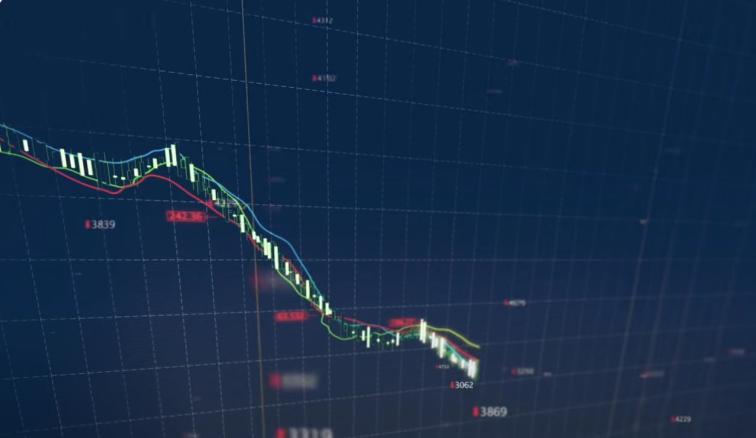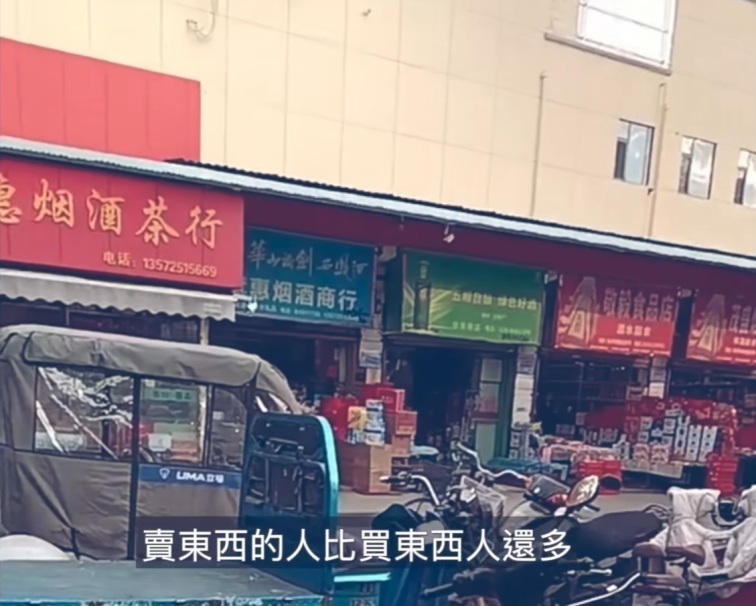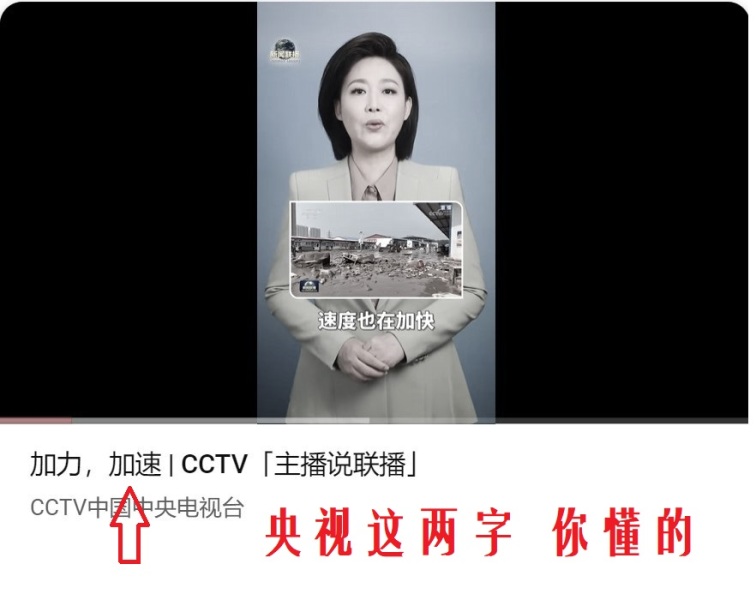The image is a profile photo of Alibaba founder Jack Ma. (Costfoto/Future Publishing via Getty Images)
Chen Kuide and Li Hengqing - Economist and Political Commentator
【People News】 1. From the Rong Family’s Migration to Canada
From Rong Yiren to Jack Ma: An Inescapable Destiny?
This is an era of turbulence and uncertainty, a time when many yearn for escape.
As 2024 transitions into 2025, China is facing a "great transformation unseen in a century." Public anxiety is rising, and people are seeking direction, making choices to navigate through chaotic times. Entrepreneurs—wealthy and influential—serve as a barometer for societal shifts, their actions drawing significant public attention.
Recently, news of the prominent entrepreneur Rong family from Wuxi immigrating to Canada has sparked shock and reflection across China. To understand their decision, we need to explore the broader fates of Chinese entrepreneurs in different eras, regions, and political climates under CCP rule.
The Rise and Fall of the Rong Family
The Rong family (including figures like Rong Desheng and Rong Yiren) has long been a symbol of Chinese entrepreneurship, capturing the nation’s imagination throughout modern history. Despite enduring immense upheavals, the family has managed to preserve its legacy through the trials and tribulations of a tumultuous century in China.
However, communism brought unprecedented catastrophe to China. In 1949, during a critical juncture in history, the nation’s "Top Ten Capitalists" all fled abroad—except the Rong family. One branch, led by Rong Desheng (Rong Yiren’s father and founder of the Rong family enterprise), was forced to stay due to a legal dispute. They became emblematic of domestic national capitalists.
During the "public-private partnership" movement of 1956, as private assets across China were gradually nationalized, Rong Yiren actively complied and led by example. Yet, when other shareholders asked if he accepted this willingly, tears streamed down his face, and he remained silent.
Premier Zhou Enlai, observing this, refrained from criticism and simply remarked that such emotions were human nature. As a high-ranking CCP leader, Zhou had little else he could say.
From 1956's Public-Private Partnership to the 1957 Anti-Rightist Movement In China, the transition from the nationalization of assets to the nationalization of thought marked a dark era.
During the Cultural Revolution, Rong Yiren's right index finger was broken by an iron rod; due to delayed treatment, he also lost vision in his left eye. Every imaginable disaster befell the Rong family, though such suffering was unremarkable in the context of the times—it was the norm in Chinese society then.
After Mao Zedong’s death, the system was no longer sustainable, prompting the regime to attempt reforms. By 1993, after yet another period of turmoil, Deng Xiaoping needed the Rong family to showcase the success of China’s reform and opening up. Rong Yiren was appointed Vice President and publicly hailed by CCP media as a "Red Capitalist," contributing significantly to the regime’s efforts to relaunch reform and opening policies.
After more than 70 years of navigating the red political system, the Rong family had ostensibly mastered the art of survival under communist rule. They were thought to be adept at managing any storm or challenge.
However, to the surprise of many, they ultimately chose to leave—completely and definitively immigrating abroad. This decision reflects more than the judgment of a single family or lineage; it encapsulates the ultimate thinking and judgment of all Chinese people. Even this family, steeped in political and social wisdom, who endured over seven decades of red rule, could no longer endure.
This makes the event a watershed moment, with a shockwave comparable to Li Ka-shing’s strategic retreat from China.
The Tragic Fate of Lu Zuofu
Lu Zuofu, chairman of the Minsheng Shipping Company and a prominent shipping magnate, also suffered under the early communist regime. After the CCP came to power, Lu was persuaded by underground communist operatives to bring his fleet from Hong Kong and sign a public-private partnership agreement with the new regime in June 1950.
That same month, Lu attended the second plenary session of the First Chinese People's Political Consultative Conference in Beijing, where he was appointed as a member of the National Committee. During his time in Beijing, he met with Mao Zedong, Zhou Enlai, Zhu De, Chen Yun, and other CCP leaders. He returned to Chongqing in October 1950 and was later appointed to the Southwest Military and Political Committee.
During the "Three-Anti and Five-Anti" campaigns that targeted corruption, waste, and capitalist behavior, Lu became a victim. On February 8, 1952, during a "Five-Anti" mobilization meeting at Minsheng Shipping Company, Lu was accused of "corrupting and bribing state officials." That same night, he took his own life by consuming sleeping pills at his home on Minzu Road 20 in Chongqing.
Rong Yiren managed to survive the storm by aligning with the regime, but even then, the family did not escape unscathed. By the time of the 1956 public-private partnership movement and the 1957 Anti-Rightist Movement, the Rong family’s wealth was confiscated, and their freedom was curtailed—leaving them bereft of both wealth and dignity.
Li Ka-shing: Hong Kong's "Superman" and His Foresight
Li Ka-shing, who has been active in Hong Kong since the 1940s, was Asia's richest man for many years.
In the 1980s, as China initiated its reform and opening-up policies, Li began making significant investments in mainland China. Thanks to his good relationships with high-ranking officials, his business flourished.
In May 1989, during the Beijing student movement and shortly after the declaration of martial law by the CCP on May 22, a group of Hong Kong students petitioned at the headquarters of Cheung Kong Holdings. Li personally accepted their petition. The students urged the business community to support the Beijing students with resources, including financial aid. That same day, Li publicly stated that the students’ motives were patriotic and that the Hong Kong business community should support them, including providing monetary assistance.
After Deng Xiaoping's southern tour, starting in 1993, Li resumed his significant investments in mainland China.
However, starting in 2013, after Xi Jinping came to power, Li began systematically withdrawing his investments from both mainland China and Hong Kong. Over the next few years, his divestment actions in these regions were dizzying and shocking to observers.
Li not only withdrew his investments and assets from China, but he also moved the registration of Cheung Kong Holdings and Hutchison Whampoa out of Hong Kong. Furthermore, Li and his family members relocated their household registrations to Canada. Today, aside from being ethnically Chinese, Li Ka-shing has little connection to China.
In August 2014, Li publicly addressed the topic of Hong Kong’s political reform, stating: "Efforts to strive for democracy are never in vain." "I firmly believe that in the progress of democracy for the Chinese nation, Hong Kong’s wisdom and brilliance will shine."
On September 12, 2015, Xinhua News Agency published an article titled Don’t Let Li Ka-shing Get Away, criticizing Li for moving his assets out of China. The article accused him of lacking moral integrity.
On September 29, 2015, Li and his company Hutchison Whampoa issued a statement responding to the accusations: "Recently, baseless accusations have been made against me and my group, garnering attention from netizens and the media. I thank everyone for their concern and take this opportunity to respond. First, I am grateful to friends from China, Hong Kong, and abroad for their recognition and trust. I understand that freedom of speech is a double-edged sword. Even an article filled with distortions and chilling tones can spark heated discussions. However, I deeply regret the article's twisted reasoning and threatening tone."
During the large-scale protests against the extradition bill in 2019, on August 16, Li released two public messages under the name "A Hong Kong citizen, Li Ka-shing." One message read: "How can the melons of Huangtai endure further plucking?" The other message included a symbol against violence with the text: Love freedom, love tolerance, love the rule of law (on the left). Love China, love Hong Kong, love yourself (on the right). At the bottom: "With the spirit of love, end anger and resentment." The messages formed a cryptic acrostic that conveyed: "The consequences arise from the state; tolerance will govern oneself with integrity."
Jack Ma: China's E-Commerce King
Jack Ma, founder of Alibaba and a CCP member, was once a leading symbol of China's reform and opening era. In October 2020, after publicly criticizing China's financial regulatory system for being outdated, Ma was summoned for a regulatory "interview." Shortly after, the IPO of his fintech company Ant Group, which was poised to be the largest in history, was abruptly halted. Ma then disappeared from the public eye. Subsequently, Alibaba and Ant Group fell largely under government control.
Currently, China's economy is in a crisis, and when Jack Ma was traveling abroad, the Chinese authorities tried to convince him to return and help demonstrate the government's support for the business community. Jack Ma himself has been coming and going to Mainland China, appearing somewhat distant. Within the company, Jack Ma has already told senior executives at Ant Financial and Alibaba not to focus on his return to the country. All these circumstances suggest that he seems to be weighing his options.
Although Jack Ma, as a symbolic figure of Chinese entrepreneurs after the reform and opening-up, has experienced rises and falls closely tied to the Chinese Communist Party, his situation has now changed.
Now, the Chinese government has actually acquired 1% of Alibaba's "golden shares," exerting further control over the company. The golden share is equivalent to the CCP taking internal control of a Chinese enterprise.
The Chinese authorities' punishment of Jack Ma has been completed. Not only was the listing of his Ant Financial halted, but he has also already resigned from many of his positions—such as CEO and Chairman of Alibaba. Under the current system, Jack Ma's departure or return no longer has any significant impact on improving Xi Jinping's image or boosting the confidence of private entrepreneurs.
Returning, Jack Ma? The fields have already become barren.
2. The Communist Party and Entrepreneurs: Born Enemies
Entrepreneurs like Lu Zuofu, Rong Desheng, Li Ka-shing, Jack Ma, and Rong Yiren—these prominent business figures from China and Hong Kong—have been treated in various ways by the Beijing authorities across different periods of Communist Party rule. The bitter-sweet, complex interplay of the Party's carrot-and-stick approach towards these entrepreneurs is impossible to fully describe. Yet, even the Rong family, who endured the longest and displayed significant patience, ultimately couldn't endure any longer, with the final family judgment being the decision to leave China.
This reveals that the Communist Party and entrepreneurs are inherently enemies who cannot coexist in a meaningful way.
No matter how much you may show goodwill, no matter how much you endure in an attempt to get along, your property rights will never truly belong to you. At any moment, they can be taken from you. Your personal freedom, your freedom of speech, never really belongs to you either. Even if you are fabulously wealthy, you remain not a free person but a slave to the Party.
Though Beijing employs all kinds of tactics to win people over, its core strategy always follows a typical Communist approach—promising one thing and delivering another. When the Party needs these business moguls, it showers them with praise and sweet words. But once these “heroes” fall into the Party’s grasp, their true nature is revealed. The so-called "free" individuals are soon enslaved.
This is the eternal truth of Communist rule.
The Golden Rule for Dealing with the Communist Party
Given this reality, we must share the golden rule for interacting with the Communist Party:
The Wisest: Become the Party’s enemy.
The Next Wisest: Become the Party’s friend.
The Most Foolish: Become the Party’s subject.
The Communist Party only respects its enemies, especially the powerful ones.
It flatters its friends, especially those who are independent and self-confident.
It disdains and tramples on its subjects, especially those under its rule.
For those who serve as subjects, always consider finding an escape route. As the saying goes, “You’re about to leave—go to that land of happiness.” If you've already “escaped,” then why not become a friend? If not, then quickly make yourself an enemy.
Alternatively, for those unwilling to remain slaves, break free, drive change, and build a free land.
Communism is fundamentally anti-business.
As long as the Communist Party refuses to abandon its communist identity, by definition, entrepreneurs will always be seen as enemies of the government.
Today, China has descended into its darkest era since 1949.
This brings to mind the grim historical moments of 1933 Germany, 1946 Central and Eastern Europe, 1949, 1962, and 1989 China, the Berlin Wall after 1961, and post-2020 Hong Kong, where the national security law trumps all.
Among contemporary Chinese entrepreneurs, it seems the tradition of being settled and deeply rooted has been permanently altered.
(Excerpt from Radio Free Asia)











News magazine bootstrap themes!
I like this themes, fast loading and look profesional
Thank you Carlos!
You're welcome!
Please support me with give positive rating!
Yes Sure!